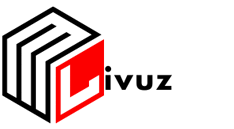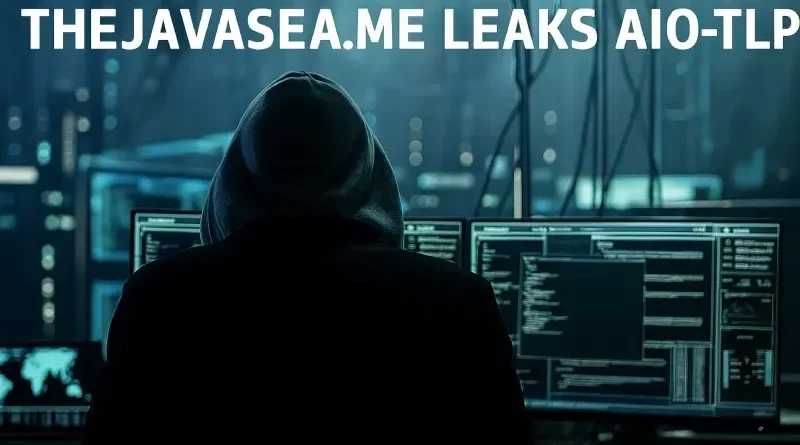TheJavaSea.me AIO-TLP Leak: Everything You Need to Know in 2025
In 2025, the digital world has become increasingly complex, with software leaks, data breaches, and underground forums shaping how information circulates online. One event that has caught the attention of tech enthusiasts and security researchers alike is the TheJavaSea.me AIO-TLP Leak.This incident not only highlights the fragility of data security in modern times but also shines a light on the role of niche websites like TheJavaSea.me, which cater to specialized communities in the tech space.
This comprehensive article explores:
-
What TheJavaSea.me is.
-
The meaning of the AIO-TLP leak.
-
Its potential uses, dangers, and controversies.
-
Cybersecurity lessons and implications for 2025.
By the end, you’ll have a complete understanding of this digital phenomenon and how it fits into today’s evolving internet landscape.
What is TheJavaSea.me?
TheJavaSea.me is a website known in niche tech circles for:
-
Sharing tools, scripts, and software mods.
-
Hosting leaks related to AI, development kits, and custom utilities.
-
Acting as a hub for enthusiasts who like exploring “off-market” digital resources.
While not as mainstream as platforms like GitHub or Reddit, it has built a dedicated following in underground tech communities.
Reputation of TheJavaSea.me
-
Positive: A resourceful place for discovering experimental software.
-
Negative: Accused of hosting or linking to leaked materials.
-
Neutral: Considered a “gray zone” platform — valuable but controversial.
What is AIO-TLP?
The leak in question is associated with AIO-TLP. Let’s break it down:
-
AIO (All-In-One) → Refers to a bundled tool or software pack. Usually combines multiple functions into a single framework.
-
TLP (Traffic Light Protocol) → A widely used system in cybersecurity communities to classify sensitive information (TLP:RED, TLP:AMBER, TLP:GREEN, TLP:WHITE).
In this context, AIO-TLP may represent a bundled software suite originally restricted under TLP classification — meant for limited audiences only. The leak means restricted material is now publicly available through TheJavaSea.me.
The AIO-TLP Leak Explained
The AIO-TLP leak refers to restricted digital material (possibly a toolkit, dataset, or AI-based software package) that was leaked or distributed through TheJavaSea.me.
Key Characteristics of the Leak:
-
Restricted Access → Originally meant for professionals, organizations, or closed groups.
-
Unauthorized Sharing → Became available to the public without permission.
-
Potential Contents → Could include AI scripts, security bypass tools, or sensitive datasets.
-
Controversy → Raises ethical, legal, and security concerns.
Why the Leak Matters
The leak is significant for several reasons:
-
Cybersecurity Risks
-
Leaked tools could be exploited for hacking, phishing, or bypassing systems.
-
Cybercriminals may weaponize it.
-
-
Innovation Access
-
Enthusiasts gain access to cutting-edge software normally restricted to experts.
-
Could inspire innovation and learning.
-
-
Ethical Concerns
-
Raises questions about intellectual property and fair use.
-
Challenges the balance between open knowledge and controlled distribution.
-
-
Community Impact
-
Attracts more traffic to TheJavaSea.me.
-
Fuels debates in tech forums about leaks and digital ethics.
-
AIO-TLP Leak Timeline
| Date (2025) | Event |
|---|---|
| January | Rumors emerge of a leaked toolkit tied to TLP restrictions. |
| February | Screenshots of AIO-TLP functions circulate in niche forums. |
| March | Leak confirmed on TheJavaSea.me. |
| April | Cybersecurity experts warn of misuse potential. |
| May–June | Tutorials, discussions, and modified versions spread online. |
| July | Organizations release advisories on handling AIO-TLP leak data. |
Possible Contents of the AIO-TLP Package
While the exact contents are debated, the leak likely included:
-
AI-powered automation scripts.
-
Cybersecurity penetration testing tools.
-
Data manipulation utilities.
-
Custom APIs or SDKs (software development kits).
-
Sensitive training datasets used in AI/ML models.
Such tools can be educational for developers but dangerous in the wrong hands.

Risks of Using Leaked Tools
-
Legal Risks – Downloading or using leaked material may violate copyright or cybersecurity laws.
-
Security Risks – Files from leaks may contain malware or spyware.
-
Ethical Risks – Using unauthorized software undermines developers’ intellectual rights.
-
Practical Risks – Lack of support or updates may render tools unstable.
Why Enthusiasts Still Seek Out the Leak
Despite risks, leaks like AIO-TLP attract attention because:
-
They offer exclusive access to restricted tools.
-
They provide learning opportunities for curious developers.
-
They build a sense of community exploration in underground tech spaces.
For many, it’s about knowledge-sharing — even if controversial.
Community Reaction to the AIO-TLP Leak
-
Developers: Some are excited about exploring new tools.
-
Security Experts: Alarmed at misuse potential.
-
Legal Analysts: Warn of copyright infringement.
-
Users: Split between curiosity and caution.
TheJavaSea.me has become a focal point for these discussions.
Table: Pros and Cons of Accessing the AIO-TLP Leak
| Pros | Cons |
|---|---|
| Access to advanced tools | Possible illegal activity |
| Educational opportunities | Security vulnerabilities in leaked files |
| Inspires innovation | No official updates or support |
| Builds niche communities | Ethical concerns about piracy and misuse |
Cybersecurity Lessons from the Leak
-
Digital Ethics Matter → Respecting TLP restrictions ensures safety.
-
Leaks Spread Fast → Once out, data cannot be controlled.
-
Awareness is Key → Users must learn to recognize risks in leaked content.
-
Organizations Need Vigilance → Stronger security for sensitive software.
The Role of TheJavaSea.me in Digital Culture
The site represents a hybrid space — part resource hub, part underground forum.
-
It fuels curiosity and open learning.
-
It blurs the line between innovation and piracy.
-
It shows how communities self-organize around leaks.
In 2025, sites like TheJavaSea.me embody the gray areas of digital culture, where access meets restriction.
Future of Leaks in 2025 and Beyond
-
Increased Regulation – Governments may tighten laws on leak sharing.
-
Advanced Encryption – Organizations will adopt stronger data protection.
-
AI-Driven Leak Detection – AI tools will track and suppress leaks faster.
-
Ongoing Curiosity – Communities will continue seeking hidden or restricted resources.

Frequently Asked Questions (FAQ)
Q1: Is TheJavaSea.me legal?
The site itself may be legal, but hosting or linking leaked material can cross into gray or illegal areas.
Q2: What does AIO-TLP stand for?
“All-in-One Traffic Light Protocol” — a restricted toolkit bundle.
Q3: Can I safely use the AIO-TLP leak?
Not recommended. Risks include malware, legal consequences, and ethical issues.
Q4: Why are leaks like this important?
They highlight security vulnerabilities and spark conversations about access vs. restriction.
Q5: What’s the safest way to learn from it?
Rely on legal, open-source alternatives for education and development.
Conclusion
The TheJavaSea.me AIO-TLP leak is more than just a niche internet event — it reflects broader issues of digital security, ethics, and community culture in 2025. While such leaks provide opportunities for exploration and learning, they also pose serious risks for misuse, legal violations, and cybersecurity breaches.For individuals, the best approach is to stay informed, explore safe alternatives, and use incidents like the AIO-TLP leak as a lesson in the balance between curiosity and responsibility in the digital age.




